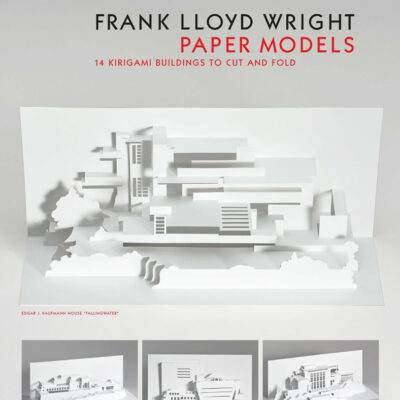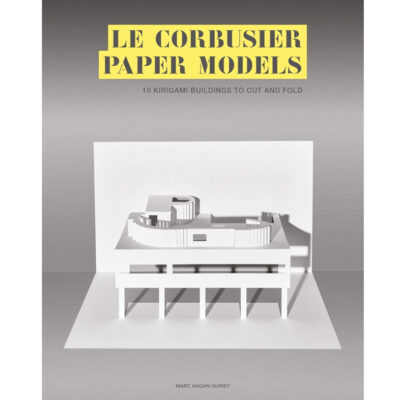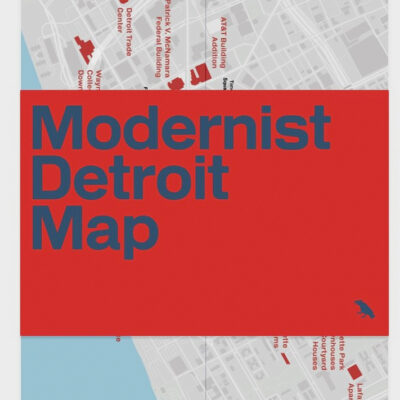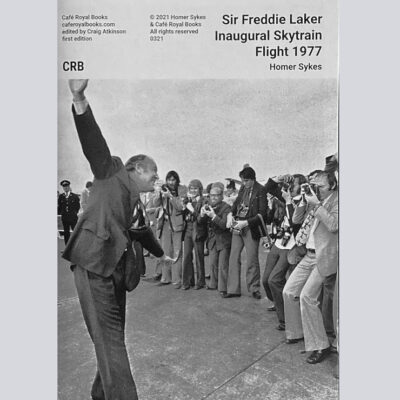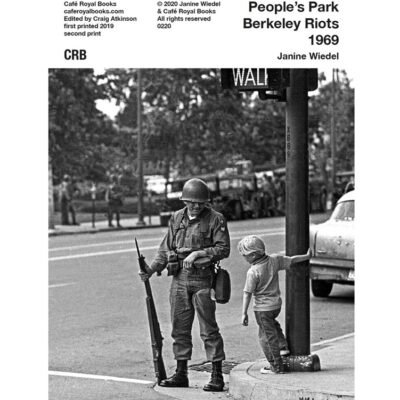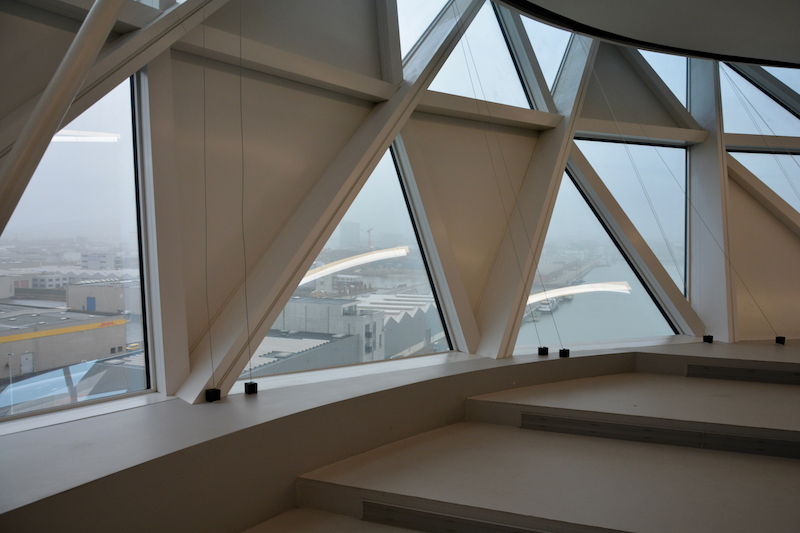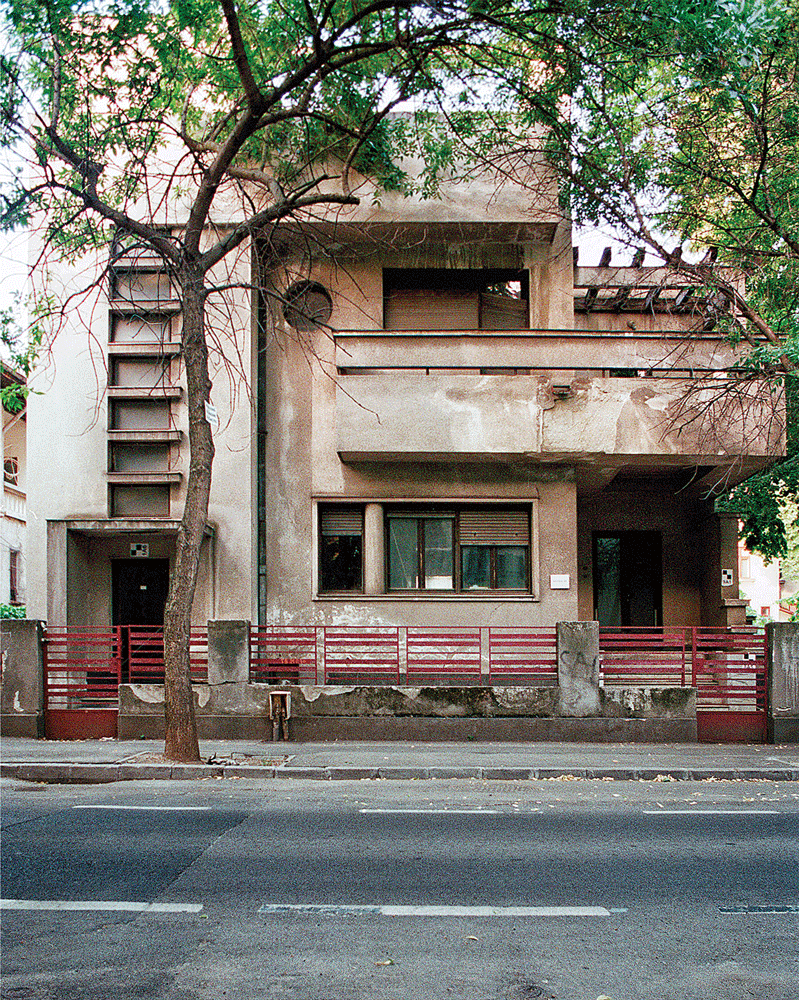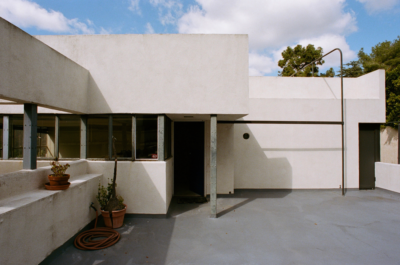The Accidental Archivist: George Smart and USModernist
Warning: Highly Addictive!
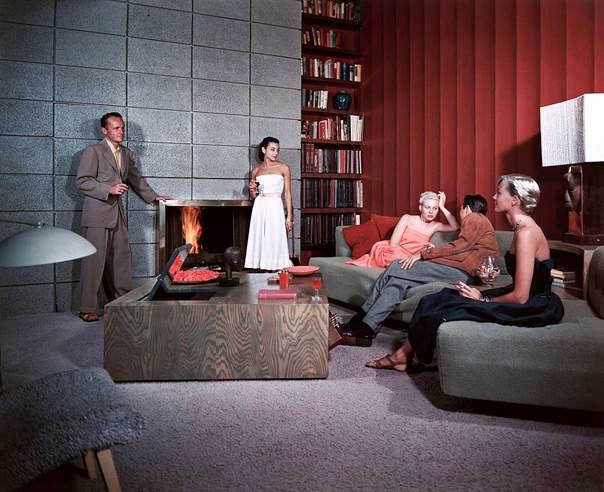
Oozing the optimism of US mid-century modernism, Julian Shulman’s famous photograph of the interior of Richard Spencer’s Santa Monica house
That’s the not entirely whimsical alert on the home page of the USModernist, the largest open digital archive of mid-century Modernist houses in the world. Nearly every Wright, Neutra, Schindler, Lautner, and more – built and unbuilt is in this archive.
Archives are serious things, gathering documents, records, contemporary views, preserving them from entropy, against mouldering away in basements and lofts. For anyone who has ever researched an archive, USModernist stands out for its accessibility both to expert and amateur and without charge.
Greyscape has had the great good fortune to interview George Smart the founder of the USModernist and one of the most important figures in preserving and popularising Modernism and a man who doesn’t take himself too seriously. And the extra honour of being guests on his weekly show.
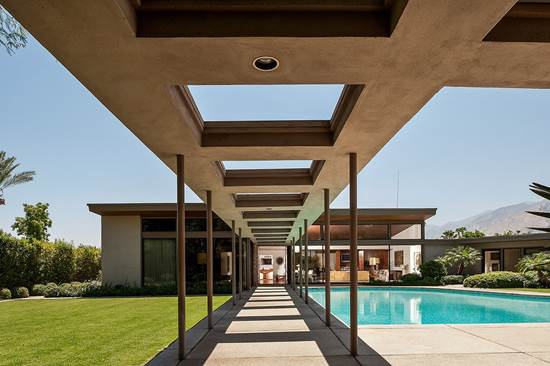
Frank Sinatra turned Palm Springs into the glamorous retreat of the show business aristocracy with E Stewart Williams’ Desert House, designed and built-in time for a New Year party, 1947
Modernism in the US took a different path to other parts of the world. While the skyscraper became symbolic of US modernity, and they certainly were modern, they’re not Modernist. Of course, there are gems of Modernist architecture in public spaces but it was the huge increase in prosperity post-World War II USA that saw a boom in the design and building of Modernist homes.
Tell us about your background and where you were educated?
I grew up in Raleigh North Carolina, the son of an architect/sailor and a radio announcer/actress. I can’t sail and I can’t act, but I do love architecture and hosting on the air. After a brief career selling computers and an MBA from Duke University, I spent 30 years as a strategic planning consultant for large companies and executive coach for small ones. The former was lucrative, the latter was satisfying.
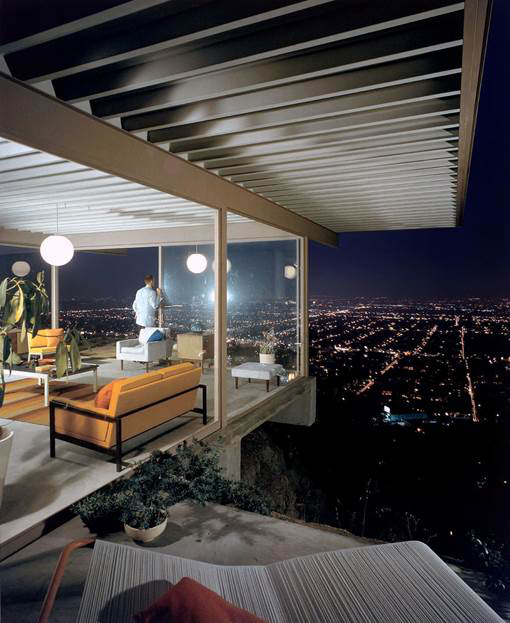
Number 22 in the Case Study House Programme sponsored by Arts & Architecture magazine, Pierre Koenig’s rightly famous Stahl House built above Sunset Blvd
And what started your interest in Modernism? Your wife refers to The USModernist project as “a 13-year seizure.”
A late-night Google search unleashed what had evidently been building up in my body for years.
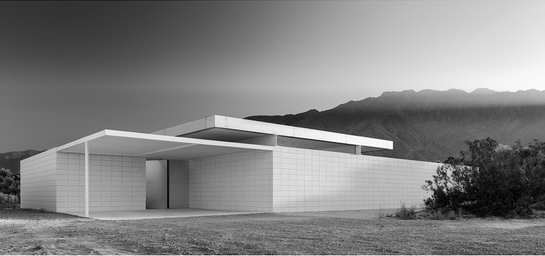
Palm Springs is a centre of residential modernist design and here are the clean lines of Jim Jennings’ Desert House
So, do you live in a Modernist house?
I live in a Modernist house inspired by Frank Lloyd Wright’s Fallingwater, not the house itself, but the experience and wonder that Modernism provides. After seeing Fallingwater, I came home and built a very basic model out of Styrofoam late into the night. When I eventually took it to an architect, he said,
“this is not how architecture works, we are supposed to make the model for YOU.”
However, that worked out splendidly and we’ve been happily in the house for ten years
Why did you begin the USModernist archive?
Too many great mid-century Modernist houses had been and were going to be torn down unless someone made the public more aware of their existence.
At first, I was the only person I knew that liked Modernist houses. But once I created the first website, Triangle Modernist, many people showed up. Within a year, we had our first tour and over 200 attended. That as over 100 tours ago. I had found my tribe.
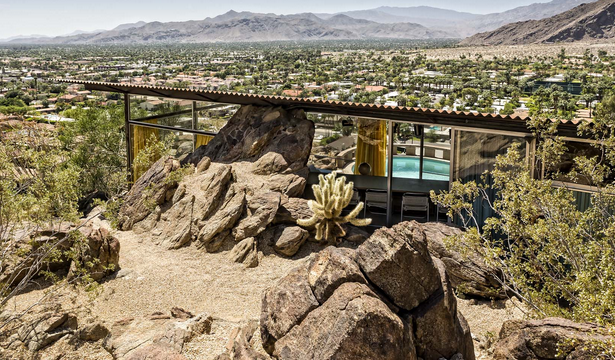
Located in Tahquitz Canyon Way, Albert Frey’s beloved Frey II, one of 200 plus buildings designed by him
What are the website’s objects and projects?
To document, preserve, and promote residential Modernist design.

From Zurich, where he was born, to Palm Springs, Albert Frey’s definitive modernist desert house overlooking Palm Springs
USModernist arranges tours of some great buildings and even in the health crisis you have introduced “trickle tours”, tells us about these and your future plans.
When there’s not a pandemic, we take people all over the area, state, nation, and world seeing Modernist buildings. We’ve been to Los Angeles, London, Washington, Palm Springs, Brussels, Zurich, New York, Berlin, Amsterdam, plus nine trips to Fallingwater, an annual event. However, with COVID we’re only about to offer what we call Trickle tours, which run at a trickle (about 15%) of our usual audience size. Using only unoccupied houses, and limiting attendees to 5 at a time inside the house, plus masks and distancing, we’ve had five tours this summer and fall with more on the way.
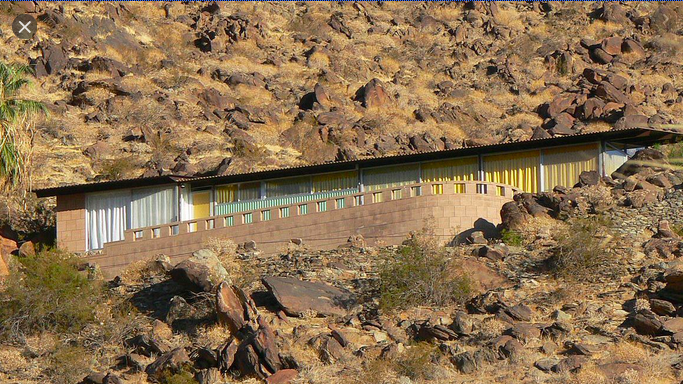
Albert Frey’s Frey II in Palm Springs
And you podcast as well, with a variety of guests, including critics of Modernism, tell us about this work.
The podcast USModernist Radio started in 2015 with a goal of making architecture more accessible and fun for the general public. We’ve recorded 180 shows with 250 guests from all over the world, talking and laughing with people who love, create, own, build, and even hate Modernist architecture, the most controversial buildings in the world. There are some avowed anti-Modernists out there, and we have them on as well for time to time, too. It’s good to hear their perspectives and keep the design dialogue going.
And here Greyscape wants to say that we are delighted that we will be George’s guests on USModernist Radio in late spring 2021
Is there a geographic aspect?
We have two sites, one for every Modernist house in North Carolina, and one for all the iconic US houses and architects.
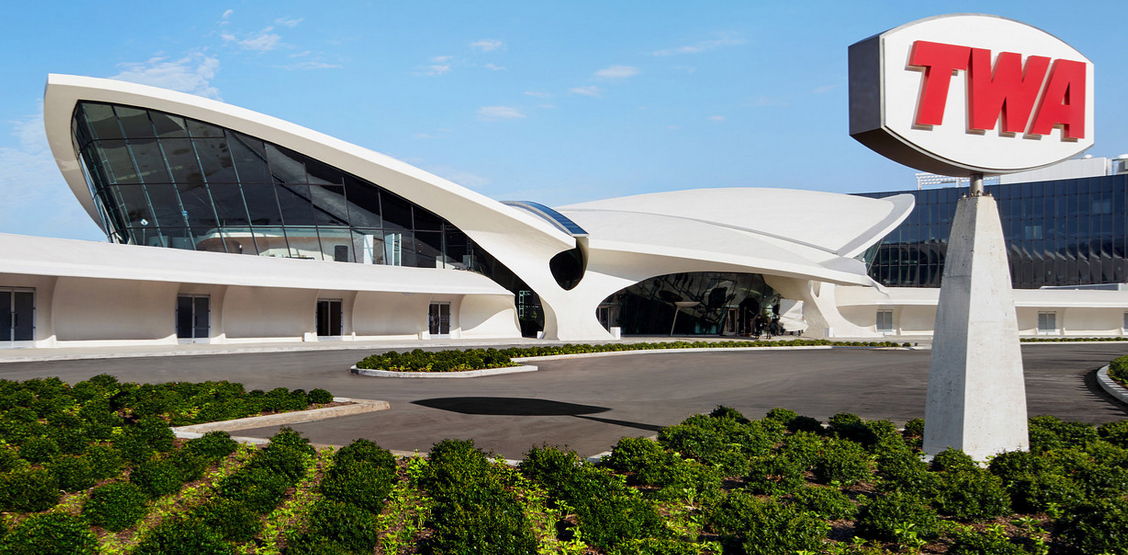
Eero Saarinen’s TWA Flight Terminal at JFK
Why does Modernism matter?
Modernism creates both an optimism and a spatial comfort that is not found in traditional architecture.
Do you see more people from different demographics becoming interested?
Modernism has never been wildly mainstream, it’s always been a niche. However, interest has been on the rebound for the last 25 years and shows no signs of stopping. People in their 20s and 30s are choosing new small modern designs like never before. Slowly, very slowly, tract developers are offering Modernist options. The tiny home movement is primarily modern, thank God, because who would want columns on their 400 square foot house?
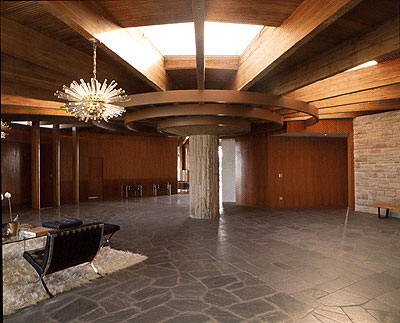
The central column in the John Lautner designed Harvey Residence. The house was restored by kelly Lynch and Mitch Glazer
Like many important buildings around the world, are there modernist buildings in the US are at risk.
We track only houses, and, happily, I’m unaware of any major Modernist houses in danger at the moment.
You began the archive because buildings were being torn down, what’s improved the situation?
Within North Carolina, we’ve documented 2400 houses. That sheer amount of information makes it much more likely that families buying or selling Modernist houses, or their agents, can find out about the architects, the histories, and other important data. We also provide the only statewide list of Modernist houses for sale, helping agents spread the word. A vacant Modernist house is a house in danger, so we work to shorten that period as much as possible.
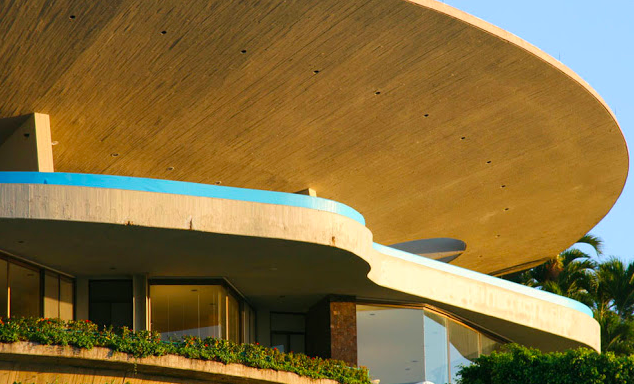
John Lautner’s Casa Mabrisas also known as Arango House
Do you have a view on US Modernism in comparison with Modernist architecture in Europe and the rest of the world?
The designs are very similar but the public reaction is not. Europeans are much more comfortable with Modern and a less adorned lifestyle.
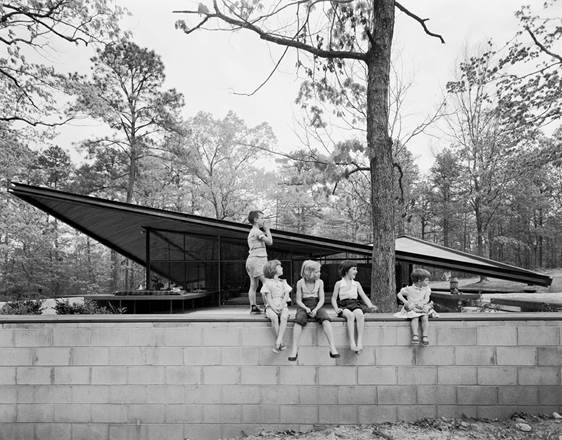
Frank Lloyd Wright praised this superb example of modernist design by Eduardo Catalano.
The one that got away – can you share about an important home that did not survive the wrecker’s ball.
The Catalano House in Raleigh:
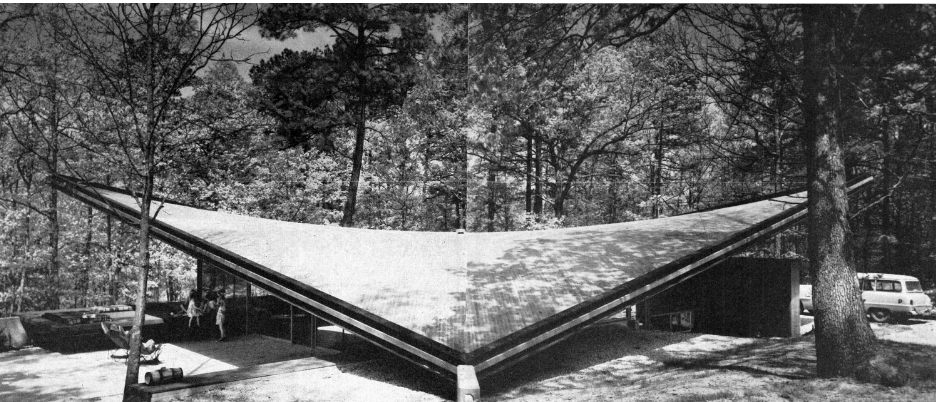
Built by Eduardo Catalano in 1954 in Raleigh, North Carolina
Do you distinguish between Modernism and International Style?
There are many academic distinctions and those are quite useful; the general public tends to see them all as one category, so we do as well.
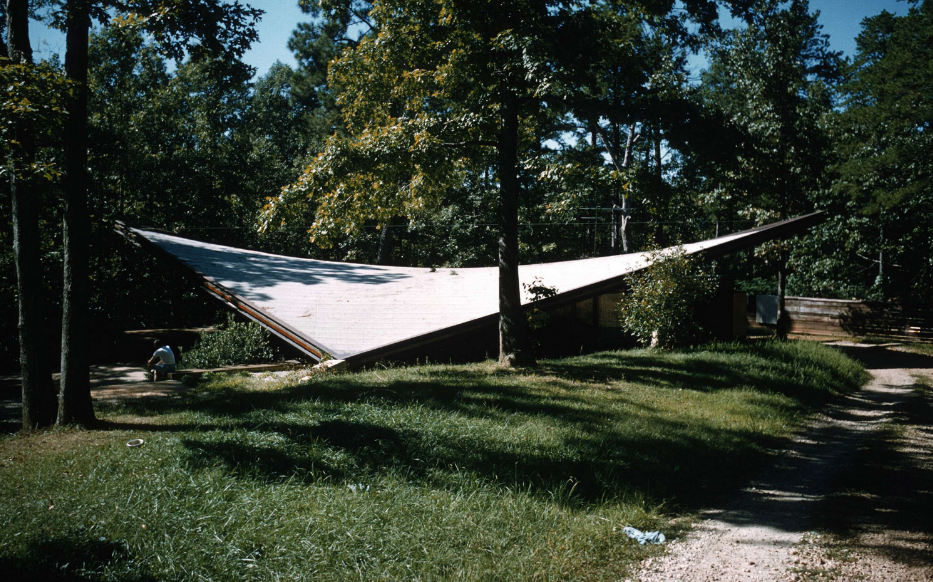
The “Potato Chip House”, built by young architect Eduardo Catalano
Who are the key personalities in the development or US Modernism?
Wright, Gropius, Breuer, Mies, Johnson, Lautner, Neutra
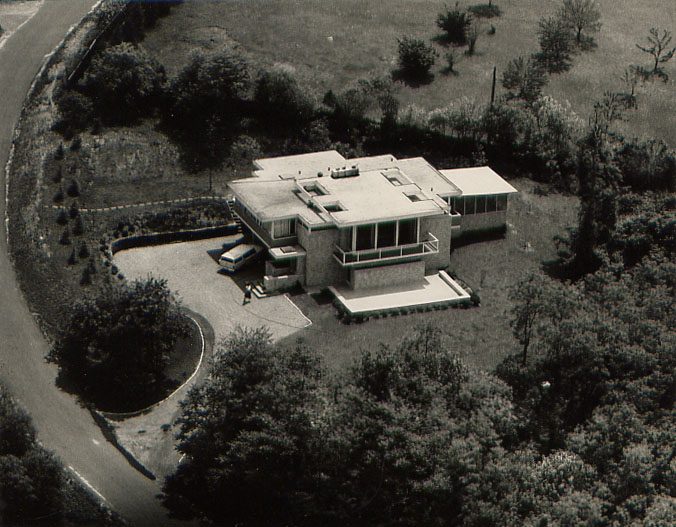
Landis Gores designed this beautiful Modernist house built in 1948. Gores, an outstanding intellect and volunteer for war service, in which he distinguished himself, worked with Philip Johnson after WWII who, by then was trying desperately to play down his years as a loud and active fan of Adolf Hitler.
How much do you think Modernism influenced design and art outside of architecture?
This is better answered by a professor. As Wikipedia says, the Modernist movement is both a philosophical movement and an art movement that arose from broad transformations in Western society during the late 19th and early 20th centuries. The movement reflected a desire for the creation of new forms of art, philosophy, and social organisation which reflected the newly emerging industrial world including features such as urbanisation, new technologies, and war. Artists attempted to depart from traditional forms of art, which they considered outdated or obsolete. **So, everything began to influence everything else.
How should people start learning about US Modernism?
www.usmodernist.org. Study our Masters Gallery. Plan a trip to Oak Park IL, LA, or New York and take a modern architecture tour. Come hang out with us at Modernism Week in Palm Springs in February of each year.
What are your favourite Modernist buildings?
Houses
- Frey II, Palm Springs
- Catalano House, Raleigh
- Sinatra House, Palm Springs
- Kaufmann House, Palm Springs
- Stahl House, Los Angeles
- Desert House 1, Jim Jennings, Palm Springs
- Kerson House, Landis Gores, Port Washington
- Kelly Lynch House, Lautner, Los Angeles
- Matsumoto House, Raleigh
- Spencer House, Santa Monica, Richard Spencer
Modernist in General
- Frey II, Palm Springs
- Catalano House, Raleigh
- Zaha Hadid Port Building, Antwerp
- TWA Saarinen Terminal
- Statoil Headquarters, Oslo
- Via 57 New York – Ingels
- Holy Comforter Lutheran Church in Belmont NC
- Atomium, Brussels
- Casa Marbrisas, Acapulco, Lautner and Arahuete
- Desert House 1, Jim Jennings, Palm Springs
What is the future of modernism?
Concrete, steel, glass, and air conditioning advances made the first Modernist wave. I think construction techniques, such prefab and 3d printing will create the second.
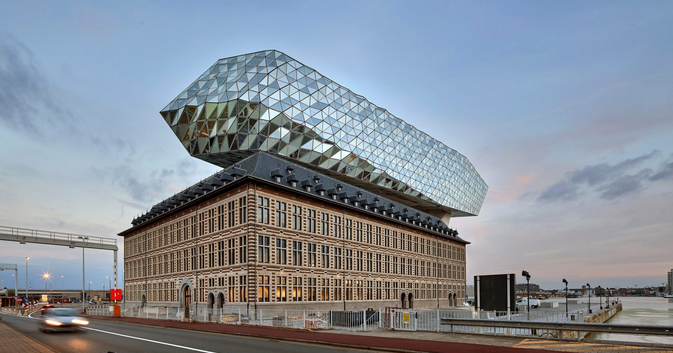
Zaha Hadid’s sparkling addition to the Antwerp Port Building
How has the pandemic affected your work?
Our organization was work-at-home already; however, our tours and social events have been scuttled for at least a year. We are running what we call “Trickle Tours” locally in unoccupied houses just to keep our members engaged.
What are your plans for the future?
Once things settle down, our tours will relaunch in Europe, Palm Springs, and New York. I’m working on a speaking tour to bring the Accidental Archivist talk to new audiences curious about modern. We also hope to start a major capital campaign to expand the non-profit, specifically our library holdings.
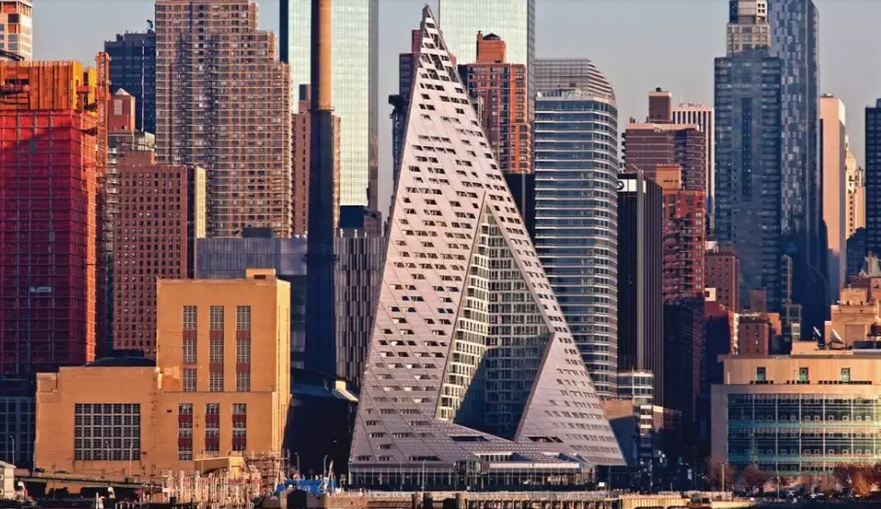
Designed by the Bjarke Ingels Group this is a residential development on 57th Street New York in Hell’s Kitchen.
Quickfire questions:
Fav film: tie between Name of the Rose and Highlander
And book: Up the Organization, Robert Townsend
House we must see: Frey II, Palm Springs
All image with kind permission of USModernist
Hear Greyscape’s interview (we on 30 minutes in:) with US Modernist here




